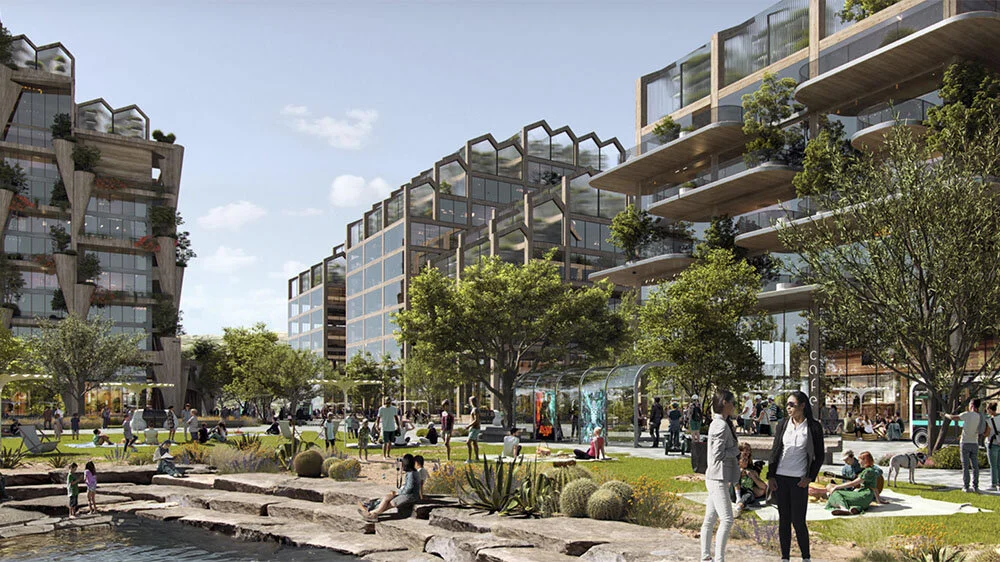The bright outlook (and challenges) of Smart City Utopia
It’s 2021 and smart cities are (happily) an expanding reality. Amongst their challenges, learnings, risings and temporary blocks, they continue to develop and are a part of the future we always dreamed of: sustainable, intelligent and adapted to needs of their citizens and the times we live in.
Recently, a former Walmart executive and entrepreneur announced his plans to build a utopian and sustainable metropolis which will incorporate smart city concepts, including a broad range of integrated and coordinated services. This smart city utopia is called City of Telosa and it can easily be seen as an impressive advance in what smart cities stand for. Fully built from scratch, the project aims to put equity and sustainability at the heart of it; from transparent technologies, improved public services or waste reduction, to renewable and eco-friendly materials to be used for construction, with an advanced communication infrastructure. This city aims big and, once operational, a circular economy system will be put in place.
Telosa will also support public and private partnerships by hosting incubators and accelerator programs, which will be made available to all of its residents. "The mission of Telosa is to create a more equitable, sustainable future. That’s our North Star," Marc Lore says. "We are going to be the most open, the most fair and the most inclusive city in the world."
To create a new city in America that sets a global standard for urban living, expands human potential, and becomes a blueprint for future generations, as the project is described, is no small task. Their website is a wonderful resource for those who want to better understand the complexity (and in many ways, simplicity) of this type of project - based on its own new societal model, called Equitism.
Looking at a project like Telosa however, can we realistically look at a Smart City future that goes beyond utopia? Similar projects have raised eyebrows in the past and, indeed, a number of past initiatives have failed to materialise their promises into a tangible reality; as a result, not everyone is convinced, and rightly so. On the other hand, Songdo in South Korea, which has been praised for its impressive utopia-like achievements, has failed to attract the population and business numbers it was hoping to, and over-emphasised the importance of AI and smart tech over creating real human connectivity - the key ingredient and, ultimately, what lies at the heart of any community.
Creating a Smart City Utopia from the ground up poses tremendous challenges, as evidenced by this example, but does this mean we should give up on the idea? What remains to be seen is whether Telosa will implement the learnings of its many precursors (indeed, a rather Smart thing to do) and set a shining example that inspires not only the creation of new urban nucleuses, but the transformation of existing ones.


